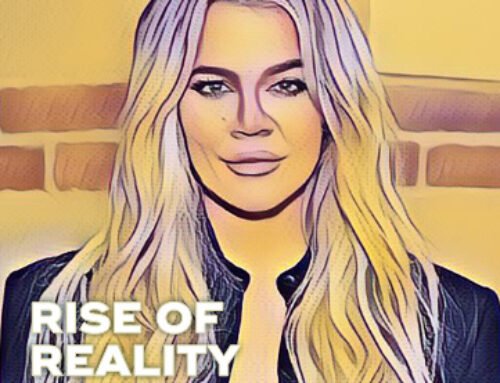The History of Celebrities
Celebrities have captured our imaginations for centuries, from the mythical heroes of ancient times to the Hollywood icons of today. They embody our desires, dreams, and aspirations, and shape our cultural values and identities. But how did we come to idolize these larger-than-life figures, and what makes them so enduring in our collective consciousness? This article explores the history of celebrity culture, tracing its evolution from the dawn of civilization to the digital age. From the gladiators of ancient Rome to the social media influencers of today, we’ll uncover the stories and myths behind our most beloved and reviled celebrities, and reflect on the meaning and impact of fame in our changing world.
The Emergence of Celebrity Culture: From Ancient Times to the 19th Century
The Origins of Celebrity Status
The concept of celebrity status can be traced back to ancient civilizations such as Egypt, Greece, and Rome, where prominent figures like pharaohs, gladiators, and actors gained fame and admiration from the masses. However, the modern definition of celebrity only emerged in the 18th century during the rise of consumer culture.
The Role of Religion and Mythology
Religious figures like Jesus Christ and Buddha were among the earliest celebrities, with widespread followers and immense influence on followers. Mythological figures like Hercules and Achilles also gained legendary status, inspiring art, literature, and culture.
The Influence of the Renaissance and the Enlightenment
The Renaissance period marked the revival of art and culture, with artists, writers, and scientists gaining fame for their contributions. The Enlightenment movement further emphasized individuality and rational thinking, leading to the rise of intellectuals and thinkers who gained celebrity status.
The Birth of Hollywood and the Rise of Movie Stars
The Early Days of Hollywood
The 1910s and 1920s saw the birth of Hollywood, where silent movies featuring stars like Charlie Chaplin and Mary Pickford became hugely popular. The introduction of sound in the 1930s marked the rise of the first “talkies” and the emergence of stars like Clark Gable and Bette Davis.
The Studio System and the Star System
The studio system, where movie studios controlled actors’ contracts and careers, resulted in the “star system,” where actors gained immense fame and popularity. Actors like Marilyn Monroe and Audrey Hepburn became cultural icons during this period.
The Impact of World War II on Celebrity Culture
World War II led to Hollywood stars taking part in propaganda efforts and entertaining troops, cementing their place in American culture and boosting their celebrity status.
The Golden Age of Television: Celebrities in the 1950s and 1960s
The Rise of Television and the Emergence of TV Stars
The 1950s and 1960s saw the rise of television, with shows like I Love Lucy and The Ed Sullivan Show featuring stars like Lucille Ball and Elvis Presley. The popularity of TV shows led to the emergence of TV stars, who gained immense fame and adoration.
The Cultural Significance of Shows Like I Love Lucy and The Ed Sullivan Show
Shows like I Love Lucy and The Ed Sullivan Show served as cultural touchstones and brought people together, creating a shared experience of television and celebrity worship.
The Impact of Civil Rights and Social Change on Television and Celebrity Culture
The civil rights movement and social change of the 1960s led to more diverse representation on television and the emergence of stars like Bill Cosby and Nichelle Nichols, who broke down barriers and challenged societal norms.
The Role of Tabloids and Paparazzi in Shaping Modern Celebrity Culture
The Birth of Tabloid Journalism
The rise of tabloid journalism in the 1970s and 1980s brought a new level of scrutiny and invasion of privacy to celebrities’ lives, with scandals and gossip dominating the media.
The Paparazzi and the Rise of Celebrity Gossip
The emergence of the paparazzi in the 1990s and the rise of the internet led to an even greater obsession with celebrity culture and gossip, with stars like Princess Diana and Britney Spears becoming victims of the paparazzi’s relentless pursuit of their images.
The Impact of Reality TV and the Kardashians on Modern Celebrity Culture
The 2000s saw the rise of reality TV shows like Keeping Up with the Kardashians, which turned ordinary people into celebrities and brought a new level of scrutiny and fame to the forefront of pop culture. The Kardashians paved the way for a new era of social media influencers and celebrities, shaping modern celebrity culture.3>The Societal Obsession with Celebrity and its Impact on Self-Image and Values
The Role of Celebrity in Shaping Cultural Norms and Attitudes
The Paradox of Celebrity: Simultaneously Adored and Criticized by Society
The Impact of Social Media on Celebrity Status and Fame
The Emergence of Social Media as a Platform for Celebrity Culture
There was once a time when celebrities were only accessible through traditional media channels such as television, magazines, and newspapers. However, the emergence of social media platforms such as Instagram, Twitter, and Facebook has changed the game. Social media has democratized fame and taken away the exclusivity that was once reserved for celebrities. Now, anyone can gain a following and achieve celebrity status through viral videos, memes, or social media influencers.
The Rise of Influencers and the Changing Face of Celebrity
In addition to traditional celebrities, social media has given rise to a new type of celebrity: the influencer. Influencers are individuals who have a large following on social media and have gained the ability to influence their followers’ purchases and opinions. They are often known for their lifestyle and fashion choices, and their online persona has become a significant part of their brand. As a result, influencers have become a significant player in the advertising and marketing industry.
The Pros and Cons of Social Media for Celebrities
Social media has its pros and cons for celebrities. On one hand, social media has allowed celebrities to take control of their narrative, entirely bypassing traditional media outlets. They can monitor fan engagement and respond to criticism on their terms. On the other hand, social media has made it easier for celebrities to make mistakes and receive backlash. Even seemingly innocent posts can be misinterpreted, leading to public outrage, canceled endorsements, and damaged reputations.
The Dark Side of Celebrity: Scandals, Tragedies and Public Backlash
The Pressure and Scrutiny of the Public Eye
With great fame comes great responsibility, but also intense scrutiny. Celebrities are constantly under the microscope, and every move they make is dissected and analyzed. The pressure to keep up appearances and maintain fan loyalty can lead to mental health issues and burnout. Additionally, the constant invasion of privacy can lead to strained personal relationships, further adding to the stressful nature of being a celebrity.
The Impact of Scandals and Controversies on Celebrity Careers
Celebrities are not immune to scandal and controversy. Often, one misstep can lead to significant public backlash and a tainted reputation. Scandals can range from simple mistakes to more serious issues such as drug addiction or sexual assault. These scandals can lead to canceled contracts, lost endorsements, and a damaged reputation, leaving many celebrities struggling to rebuild their careers.
The Tragic Fates of Celebrities Who Died Too Soon
Unfortunately, some celebrities’ lives are cut short due to tragedy. From accidents to drug overdoses, the entertainment industry has seen its fair share of heartbreaking losses. The sudden death of celebrities has often led to public mourning and tributes. However, it also serves as a reminder of the harsh realities of fame and the toll it can take on those in the public eye.
The Future of Celebrity: Trends, Challenges and Opportunities
The Continued Evolution of Celebrity Culture
As technology continues to advance, the entertainment industry is also expected to change. The traditional model of celebrity may become obsolete as new forms of entertainment emerge. The future of celebrity will likely see a further emphasis on social media and influencer culture, with a shift towards more authentic and relatable content.
The Impact of Technology and Globalization on Celebrity
Social media has allowed celebrities to reach a global audience, breaking down geographic barriers and building connections across cultures. However, the rise of technology and globalization has also led to increased competition for attention and a flooded market of content creators. As a result, celebrities will need to work harder to stand out and maintain their relevance.
The Challenges and Opportunities of Maintaining Celebrity Status in the 21st Century
The 21st century presents both challenges and opportunities for celebrities. While social media has made it easier to achieve fame, it has also made it harder to maintain it. The fast-paced nature of social media means that trends and interests can change quickly, leaving many celebrities struggling to keep up. However, the opportunities for growth and monetization are also higher than ever, meaning that those who can adapt and innovate will likely thrive.
Celebrity as a Cultural Phenomenon: Reflections on Fame, Identity and Society
The Societal Obsession with Celebrity and its Impact on Self-Image and Values
Society has always had a fascination with celebrities and their glamorous lives. However, this fascination has grown with the rise of social media, leading to an unhealthy obsession with fame and fortune. The constant exposure to polished and curated lives can lead to feelings of insecurity and inadequacy, potentially impacting mental health.
The Role of Celebrity in Shaping Cultural Norms and Attitudes
Celebrities have considerable influence over society’s attitudes and beliefs. They are often at the forefront of social and political issues, using their platform to effect change. The visibility and power that comes with celebrity culture can be used positively to promote social causes and raise awareness of important issues.
The Paradox of Celebrity: Simultaneously Adored and Criticized by Society
Celebrities are often loved and adored by the public, but they are also heavily criticized and scrutinized. The paradox of celebrity lies in the fact that they are simultaneously idealized and put under intense pressure to perform. Celebrities face a unique set of challenges and opportunities, and the public’s perception of them can change in an instant. From the birth of Hollywood to the rise of social media, the history of celebrity culture has been a story of fascination, adoration, and controversy. Whether we admire or criticize them, celebrities continue to shape our ideas of beauty, success, and happiness, and reflect the values and contradictions of our society. As we look to the future, we can only wonder what new forms of celebrity will emerge and how they will influence our lives. One thing is certain though: the history of celebrities is far from over, and their impact will be felt for generations to come.
FAQ
What Is Celebrity Culture?
Celebrity culture refers to the phenomenon of people idolizing, admiring, or following the lives of famous individuals, often from the world of entertainment, sports, politics, or social media. It encompasses the values, behaviors, and attitudes associated with being a celebrity and reflects the broader cultural trends and shifts of a society.
What Is the History of Celebrity Culture?
The history of celebrity culture goes back to ancient times, when heroes, kings, and gods were worshipped as symbols of power, virtue, and beauty. With the rise of modernity, the emergence of mass media, and the development of consumer culture, celebrities became a more widespread and influential phenomenon, shaping the tastes, desires, and lifestyles of the masses. Hollywood, television, and social media have all played a pivotal role in the evolution of celebrity culture, as have the scandals, tragedies, and controversies that have often accompanied it.
What Are the Pros and Cons of Celebrity Culture?
The pros of celebrity culture include the entertainment, inspiration, and escapism it provides, as well as the economic benefits and opportunities it generates, such as jobs, revenue, and tourism. The cons of celebrity culture include the superficiality, narcissism, and commodification it promotes, as well as the negative impact it can have on the mental health, privacy, and dignity of celebrities and their families. Additionally, the obsession with fame and success can create unrealistic expectations and lead to a sense of disillusionment, envy, and anxiety among the general public.
What Is the Future of Celebrity Culture?
The future of celebrity culture is uncertain, but it is likely to be shaped by the evolving dynamics of technology, globalization, and social change. The rise of social media and the democratization of fame are expected to have a profound impact on the way we perceive, consume, and interact with celebrities, as well as on the nature of celebrity itself. The challenges and opportunities of maintaining celebrity status in the 21st century will also require new skills, strategies, and ethics, as well as a critical reflection on the cultural and social value of celebrity culture.




